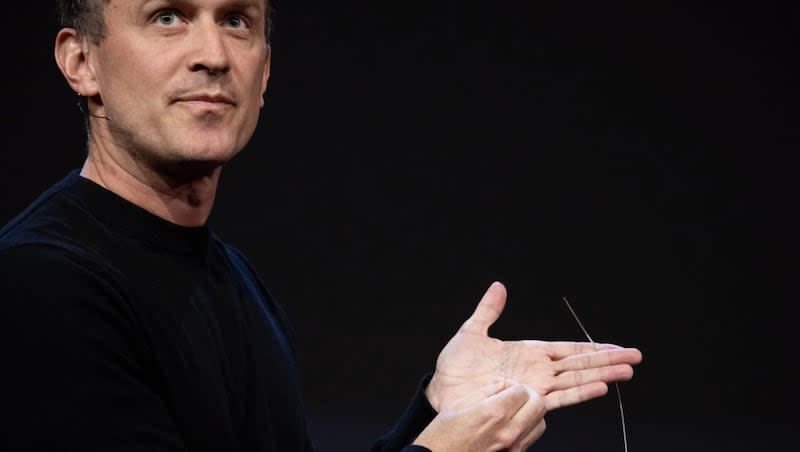Synchron seeking patients for clinical trial of brain implants

Brain-chip interface startup Synchron has announced a registry for patients who have severe motor impairments and are interested in participating in a future clinical trial to see if the company’s neural implant allows them to use their thoughts to perform hands-free tasks.
The registry is a significant move in advance of the company’s plans to launch a large clinical trial, the ultimate goal to seek U.S. Food and Drug Administration approval for commercial sale of the implant as a medical device.
“Synchron’s BCI technology is designed to decipher the neural code of the brain and find new ways to restore motor intent to control digital devices. The Synchron BCI represents a novel approach to restoring functionality in patients with limited mobility. By leveraging the natural highways of the brain, an individual’s blood vessels, the device is implanted in the brain without the need for invasive brain surgery,” according to Synchron’s news release.
“The system could allow paralyzed patients to compose text messages and operate smart devices with brain signals picked up by an implantable brain electrode stent called Stentrode,” per MassDevice.com.
The chip is placed through the jugular into the blood vessel on the surface of the brain’s motor cortex. “Once implanted, it is designed to detect and wirelessly transmit motor intent out of the brain, intended to restore the capacity for severely paralyzed patients to control personal devices with hands-free point and click,” the release said.
The company describes the pending registry as “an avenue for potential users and their physicians to engage and stay connected while we prepare for the next stage of clinical trials.”
In September, the Brooklyn-based company said that the device had been implanted in six patients for a small feasibility study. That type of study determines whether the item being tested is safe enough to warrant further study.
CEO Thomas Oxley told Reuters that Synchron, a commercial rival to Elon Musk’s Neuralink brain implant company, “has received interest from about 120 clinical trial centers to help run the study.”
Reuters said that Synchron, which has received financial backing from Bill Gates and Jeff Bezos, among others, is further along in tests of its implant. “Both companies initially aim to help paralyzed patients type on a computer using devices that interpret brain signals,” Reuters reported. “The company aims to include patients who are paralyzed due to the neurodegenerative disease amytrophic lateral sclerosis, stroke and multiple sclerosis, Oxley said.”
Clinical trial approval pending
A large-scale clinical trial hasn’t been approved yet, but Oxley said the company wants to be ready to launch if authorization is received. Reuters reported that the FDA wants the company to use a noninvasive test to see whether stroke patients would respond to the technology.
“(Synchron) wants to expand the market for people who have had a stroke severe enough to cause paralysis because if limited to quadriplegia, the market is way too small to be sustainable,” Kip Ludwig, former program director for neural engineering at the National Institutes of Health, told Reuters.
The Synchron website includes a video of the investigational device and its first clinical patient controlling his computer with the implant as he connects with his wife.
Synchron earlier announced that it has acquired an equity stake in Acquandas, a German company that makes “high-precision components for health care and other industries.”
“As we pioneer functional endovascular neurotechnology, this investment strengthens our technology innovation and supply chain for our unique product offerings, beginning with brain-computer interfaces,” Oxley said in that release.
Bezos and Gates both reportedly backed the device through their respective investment funds during a $75 million Series C financing round, MassDevice.com reported.

